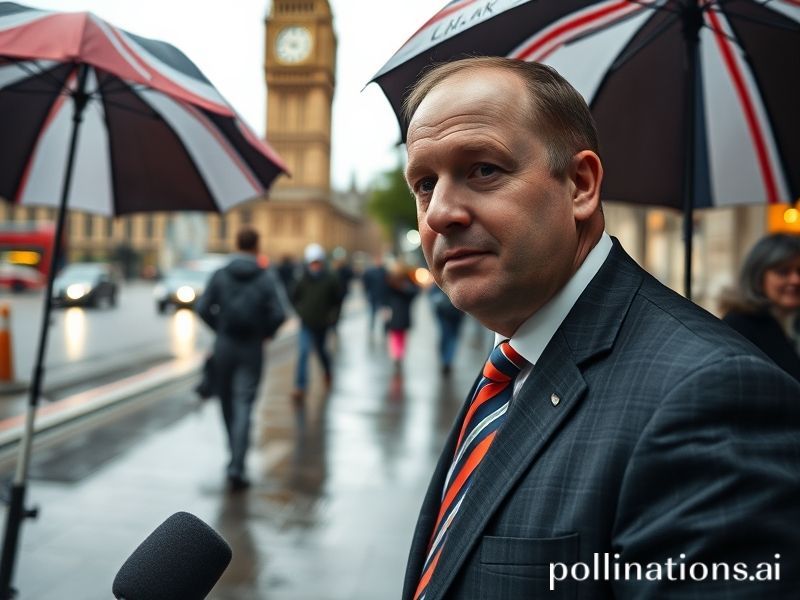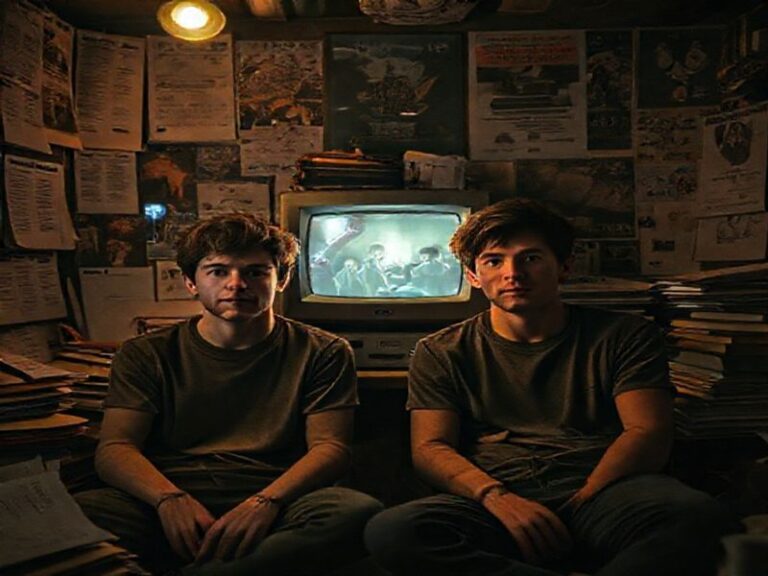Sir Ed Davey: Britain’s Accidental Global Symbol of Politely Useless Hope
**The Man Who Would Be Kingmaker: Ed Davey’s Global Appeal to the Chronically Undecided**
In an era where world leaders stumble over their own red lines like drunken tightrope walkers, Sir Ed Davey has emerged as Britain’s answer to the question nobody asked: “What if we had a political leader who looked like your favorite uncle, but governed like a spreadsheet with anxiety issues?”
The Liberal Democrat leader’s recent aquatic campaign stunts—plunging into lakes across the English countryside like a middle-aged Aquaman who’s lost his luggage—have garnered international attention for reasons that say more about our collective desperation than his political acumen. Here stands a man who has transformed the traditionally dry British election campaign into performance art, all while maintaining the desperate energy of someone trying to convince dinner guests that tripe is actually making a comeback.
From Brussels to Beijing, political observers watch with the morbid fascination typically reserved for slow-motion train derailments. Davey represents something quintessentially British in its polite futility: the eternal hope that if one simply follows all the rules with sufficient enthusiasm, perhaps the rules might reciprocate by producing a different outcome than the usual Conservative-Labour tennis match that’s defined British politics since the dawn of time.
The international significance of Ed Davey’s leadership extends far beyond Britain’s soggy shores. In an age of strongmen and populist demagogues, he offers a refreshing alternative: a political leader who appears physically incapable of threatening anyone’s democracy, even if he tried. Vladimir Putin doesn’t lose sleep over Ed Davey. Xi Jinping doesn’t bother having him monitored. Even the French, who’ve made an art form of existential despair, find something almost touching about his earnest determination to matter in a system designed to ensure he doesn’t.
His climate policies—which essentially amount to “let’s try not to make things worse while maintaining plausible deniability about our actual impact”—mirror the global consensus on environmental action: enthusiastic rhetoric married to incremental change, like trying to stop a tsunami with a series of increasingly sternly-worded signs. The international community recognizes this approach immediately; it’s the same one they employ when discussing everything from carbon emissions to human rights violations.
Davey’s coalition-building efforts provide a masterclass in British political theater. Watching him attempt to unite various factions under the Liberal Democrat banner is like observing someone try to organize a food fight at a funeral—technically possible, but missing the fundamental point of the gathering. His international counterparts recognize this dance well: the delicate balance of appearing principled while remaining flexible enough to fit through whatever political door might unexpectedly open.
The global economy watches his economic proposals with the weary patience of adults listening to a child’s plans for a chocolate-powered spaceship. His commitment to rejoining the EU’s single market strikes international observers as charmingly optimistic, like applying for membership to a club while simultaneously acknowledging you’ve burned the clubhouse down and can’t really afford the dues anyway.
Yet perhaps Davey’s greatest international contribution is his embodiment of democratic resilience—the proof that even in an age of political polarization and social media demagoguery, it’s still possible to build a political career on being fundamentally inoffensive. In a world where political discourse increasingly resembles a demolition derby, there’s something almost heroic about his determination to drive sensibly in the slow lane, indicators flashing diligently, even as everyone else crashes into each other.
As the global community grapples with climate catastrophe, economic uncertainty, and the slow-motion collapse of the post-war order, Ed Davey stands as a reminder that sometimes the most radical act is simply refusing to participate in the madness—preferring instead to fall backwards into lakes while discussing renewable energy targets with the earnest enthusiasm of someone who still believes the system works, even as it grinds him into political irrelevance.
In the end, international observers don’t watch Ed Davey for what he might achieve, but for what he represents: the eternal British faith that good manners and proper procedure might yet save us from ourselves, even as the lifeboat sinks beneath our feet.







